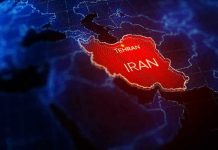
Chinese tech giant Huawei must face 13 criminal charges after a US judge rejected their dismissal bid, paving the way for a high-stakes trial that exposes China’s corporate espionage and sanctions violations against America.
Key Takeaways
- US District Judge Ann Donnelly rejected Huawei’s attempt to dismiss 13 of 16 criminal counts, including technology theft, racketeering, wire fraud, and bank fraud.
- Prosecutors allege Huawei secretly controlled Skycom, a Hong Kong company that conducted over $100 million in Iranian business through the US financial system, violating sanctions.
- The Chinese tech giant is accused of stealing trade secrets from six American companies and conducting business with sanctioned nations including Iran and North Korea.
- Huawei claims it’s “a prosecutorial target in search of a crime” while Chinese officials denounce the charges as “economic bullying” by the United States.
- A lengthy trial is scheduled for May 4, 2026, continuing President Trump’s strong stance against Chinese technology threats to national security.
Judge Rejects Huawei’s Dismissal Bid
In a significant victory for American national security interests, US District Judge Ann Donnelly has ruled that Chinese telecommunications giant Huawei Technologies must face criminal prosecution on multiple serious charges. The decision rejects Huawei’s attempt to dismiss most of a federal indictment accusing the company of stealing technology secrets, conducting business with sanctioned nations, and deliberately misleading banks about its operations in Iran. Judge Donnelly’s ruling ensures the Chinese company will be held accountable for its alleged systematic campaign of intellectual property theft targeting American companies.
“A US judge has ruled that Huawei must face criminal charges related to technology theft, racketeering, and fraud,” said US District Judge Ann Donnelly in her ruling that sent shockwaves through the global technology sector.
Iran Sanctions Violations and Shell Companies
At the center of the case is Huawei’s alleged control of Skycom, a Hong Kong company that prosecutors claim functioned as Huawei’s covert Iranian subsidiary. According to court documents, Skycom conducted over $100 million in business transactions through the American financial system, directly violating US sanctions against Iran. Judge Donnelly specifically noted that Skycom “operated as Huawei’s Iranian subsidiary and ultimately stood to benefit, in a roundabout way,” from these illicit transactions, creating a clear connection between Huawei’s leadership and the sanctions violations.
“Operated as Huawei’s Iranian subsidiary and ultimately stood to benefit, in a roundabout way,” said Donnelly.
The Justice Department’s 2019 indictment further alleged that Huawei used this shell company arrangement to sell equipment to Iran while concealing the connection to American banks processing the transactions. The case gained international attention when Huawei’s Chief Financial Officer, Meng Wanzhou, was charged with fraud related to these activities, eventually leading to her arrest in Canada and a subsequent high-profile prisoner exchange in 2021. This prisoner swap highlighted the geopolitical tensions surrounding Huawei’s legal troubles and China’s aggressive response to American law enforcement actions.
Trade Secret Theft and Broader National Security Concerns
The indictment extends beyond sanctions violations to include charges of systematic intellectual property theft from six American companies. These allegations align with longstanding concerns from the Trump administration about Huawei’s threat to national security. President Trump has consistently warned about the dangers of allowing Chinese telecommunications equipment in critical American infrastructure, pointing to the company’s suspected ties to Chinese intelligence services and military. The criminal case reinforces these concerns by exposing Huawei’s alleged pattern of corporate espionage and deception.
“Economic bullying,” stated Chinese officials.
Huawei has vigorously denied the allegations, claiming to be “a prosecutorial target in search of a crime” and suggesting the charges are politically motivated. Chinese officials have predictably accused the United States of “economic bullying” and using national security as a pretext for “oppressing Chinese companies.” These statements echo Beijing’s typical response when Chinese companies face consequences for their illegal activities in Western markets, attempting to frame law enforcement actions as unfair persecution rather than legitimate prosecution of corporate wrongdoing.
Trial Timeline and Market Impact
With a trial scheduled for May 4, 2026, the legal proceedings could stretch for several months, creating ongoing tensions in US-China relations. Huawei has already pleaded not guilty to all charges but failed to convince Judge Donnelly to dismiss most counts. Since facing US sanctions and export controls, Huawei has lost significant global market share, particularly in the smartphone and telecommunications equipment sectors. The company has increasingly focused on the Chinese domestic market and diversified into non-sanctioned technologies, attempting to survive despite American restrictions.
The case represents an important test of President Trump’s commitment to holding Chinese companies accountable for intellectual property theft and sanctions violations. By proceeding with this high-profile prosecution, the administration is sending a clear message that corporate espionage and deceptive business practices by Chinese firms will face serious consequences. The outcome could significantly influence future technology competition between the United States and China, potentially setting precedents for how American law enforcement addresses similar cases involving foreign technology companies.




